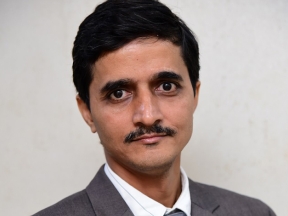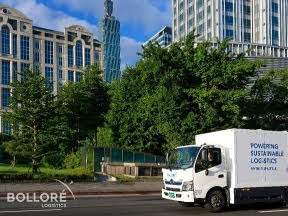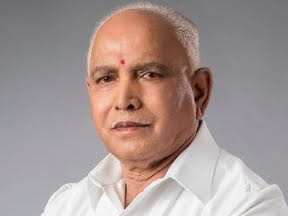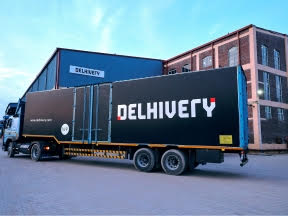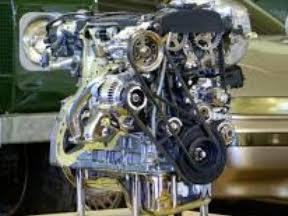Vikash Khatri, Founder, Aviral Consulting is of the opinion that by the end of FY 21 the logistics industry will be on a normal growth trajectory with a lag of one year. Explaining how, he continues, “We are approaching towards mid of FY 21 and the situation is still not normal. Although most of the economic activities have started inspite of the growth in COVID-19 cases but a normal situation is still far-off. Our estimate about transportation sector is aligned with ICRA’s estimate of contraction by 18-20 per cent. If we break down volume trends in month over month, we find that April was a completely washed out month, while transportation activities in May were about 45-50 per cent normal. Since June there is continuous improvement in month over month volumes and it is currently hovering around 80 per cent of normal volume. In last five months, decline in EXIM has also directly impacted hinterland transportation volumes. Once we extrapolate these volumes for FY 2021 with continued improvement in subsequent months, we see overall contraction in road transportation to the tune of 20 per cent.”
Read More »No benefit provided by the government to help a fleet owner in the times of crisis: Surendra Jeet Singh
The transportation companies have been burdened with high fuel rate which exists despite such low rates of crude in international market. The effect or benefit of falling crude in international market has not percolated to this sector at all while all the benefit is being passed on to state-owned refining companies. According to Surendra Jeet Singh, Managing Director, Pinkcity Logistics, it is not a great business decision on part of the government. He adds, “In times of pandemic, the state should subsidise the sectors of industries which are stressed and the government could have helped the sector by assisting on fuel prices and helping with the direct state taxes form the major part of overhead and operational cost. No benefit has been provided by the government to help a fleet owner to maintain the staff during the pandemic. Logistics sector, particularly road, if not provided with these benefits can take more than next three quarters to see an upside.”
Read More »From the pages of Cargotalk: Aggregation models should be strengthened to bring efficiency: Aditya Shah
Commenting on the aggregation model where truck owners are connected by the goods supplier, Aditya Shah, Executive Director, V-Trans India emphasised, “A lot of attempts have been made whether through private players or associations. To bring in efficiency, aggregation models should be strengthened, and they must be accessible to everyone, be it a truck aggregator or direct consumer. However, since the volume is so huge, probably one aggregating platform may not be able to sustain. It is only possible if three to four players merge, whether it is private or government, in order to make the truck seamlessly available to everyone. So, the data would be available but it is more about how easily we are able to access it with the use of technology and get the vehicle wherever you required it.”
Read More »Bollore Logistics launches hybrid trucks for deliveries in Taiwan
Continuing its efforts towards greater environmental sustainability, Bolloré Logistics Taiwan has launched a first hybrid truck for local deliveries in collaboration with Chieh Yu. The Hino 300 HV was selected to meet growing demand for greener logistics solutions on the domestic market and comes equipped with a nickel-metal hydride (NiMH) battery which has the advantage of proven reliability, safety and durability even in high current applications, as well as resilience to overcharging. It is a 6.5 tonnes truck with a payload capacity of three tonnes per trip. The new Hino Hybrid can also accelerate gently without increasing diesel engine revs, using the electric motor for propulsion instead. Additionally, the vehicle will cover nearly 20,000 km per year, plying from clients’ warehouses up to their boutiques anywhere within Taiwan Island. “Powering sustainable logistics is not just a tagline to us, we actively practise this philosophy to deliver greener, smarter, and cost-effective solutions across the domestic market. We truly believe that the use of cleaner trucking technologies will help to shape the future of the logistics industry in a responsible manner and are thankful to the stakeholders who have stood beside us in pioneering such initiatives and innovating towards a greener, better future”, said Helen Hung, Managing Director, Bolloré Logistics Taiwan.
Read More »From the pages of CargoTalk: Technology reduces the manpower cost: Chander Agarwal
Stressing on the difficulties being faced by the unorganised sector and how difficult it is going to be for them to survive, Chander Agarwal, Managing Director, TCI Express said, “The unorganised segment is going to go through a tough time in the next few years because if they are not asset light or manpower heavy, it’s going to be very challenging.” He continued, “Looking at the way the organised segment is positioned, the entire crisis has helped us to manage our cost and become more lean.” Adding to this, Goyal said, “With the help of technology, manpower cost has come down; it has made us realise that a number of field staff were not even required.”
Read More »Indian Railway launches first Ro-Ro train between Bengaluru & Solapur
The maiden Roll-On/Roll-Off (RO-RO) train between Bengaluru (Nelamangala) to Solapur (Maharashtra) consisting of open flat wagon was flagged off by BS Yediyurappa, Chief Minister, Karnataka through video conferencing. According to South Western Railway, the train will take 17 hours to cover 682 kms and reach its final destination. The SWR said in a statement that a total of 42 trucks with goods can be carried at time in this train which will run via Dharmavaram, Guntakal, Raichur and Wadi to reach Bale near Solapur in Maharashtra. The SWR noted that the RORO service reduces accidents on the road, improves safety, saves fuel, and foreign exchange. The RORO service is also set to ensure faster transport of essential goods, food items and smaller cargo and can also play an important role in facilitating large-scale movement of goods and reduces pollution.
Read More »From the pages of CargoTalk: No industry is at 100 per cent levels after COVID-19: Aditya Shah
“The standard story is that no industry is at 100 per cent levels; FMCG and pharma were the first ones who sprung up because of requirement irrespective of lockdown as they fall into the essential category. These verticals recovered but not to 100 per cent; they also had their struggles in terms of manufacturing or last-mile delivery. Chemical industry has also sprung back decently in May and June because chemicals are also required either in pharma or in FMCG. However, the auto industry is definitely a challenge for a little while and is not coming back so fast like other sectors. The entire chain in the auto is going to remain a challenge for a while whether it is a truck or car or two-wheeler. There will be a buying challenge at the consumer level. Probably, the sales of tractor and spare parts may not get impacted because of the agriculture and farm sector,” informed Aditya Shah, Executive Director, V-Trans India.
Read More »Delhivery & Volvo join hands to test ’tractor-trailer’ combination for express cargo
Addressing challenges of speedy delivery and cost efficiencies of services, Delhivery and Volvo have come together to test and deploy an articulated Volvo FM 4×2 solution for express operations. In line with the governments ambition of reducing the logistics cost of the country Volvo will work towards better solutions that will render faster turn-around time, higher up-time of the trucks, safer and comfortable trucks that will enable the driver deliver increased productivity. These custom built solutions will enhance the efficiency of the express cargo movement through trailers of higher capacities of around 93 cum, maintaining an average running of over 20 hours a day and 3,00,000 km in a year. These tractor-trailers will revolutionise the industry by delivering efficiency and productivity which is more than double compared to the current range of tractors in India. The logistics industry needs trucks that will set benchmarks in vehicle uptime, reliability, load carrying capacity and running km per year, to meet the demands of the e-commerce business. With the changing ground realities, the logistics industry is gearing up for new opportunities, which will revolutionize the long haul transport industry.
Read More »ZYPP Electric Mobility delivers over 5 lakh essential goods in lockdown
ZYPP Electric Mobility has declared that the start-up has successful delivered of more than 5 lakh shipments for its customers in the last 4 months since the outbreak of COVID-19. ZYPP has partnered with top e-commerce and e-grocery companies like Amazon, Big Basket, Future Group, Flipkart, Spencers, and many more hyperlocal merchants and helped them deliver essentials to their end customers’ homes. The start-up doubled down on last mile delivery services during COVID-19 eyeing to accommodate the void created due to surged demands in the essentials delivery category with tie-ups with top e-commerce and e-grocery majors. Akash Gupta, CEO and Co-Founder, ZYPP Electric Mobility said, “eGrocery is growing at 30 per cent CAGR in India and this is pre-Covid growth. Now post Covid-19, last mile delivery is touching a new inflexion point and we as Zypp Electric are able to provide upto 20 per cent savings to our customers on every delivery which is huge savings at scale in the logistics eco-system. Zypp Electric is here to disrupt the last mile ecosystem and would try and target 100 per cent of last-mile logistics to go electric by 2025 which is what Delhi EV policy also suggests. Zypp has worked aggressively in last 12 months to build the fleet, the infra, the tech, has a network of trained riders and also all key partners already working with us. Hence, Covid-19 has acted as the moment of demonetization for last mile deliveries.” Adding further, KB Nagaraju, Chief Customer Experience Officer, bigbasket, said, “bigbasket is committed to providing best possible services to customers and ensuring that deliveries are done in an environmentally sustainable yet timely manner. It is towards this end that we …
Read More »Indian auto component imports & exports saw drop by 11.4% & 3.2% respectively: ACMA
The turnover of the automotive component industry stood at Rs 3.49 lakh crore (US$ 49.2 billion) for the fiscal year 2019-20, registering de-growth of 11.7 per cent over the previous year,” informs Automotive Component Manufacturers Association of India (ACMA). Commenting on the performance of the auto component industry in India, Vinnie Mehta, Director General, ACMA said, “The overall vehicle industry witnessed a severe downturn in 2019-20 that saw its sales slump by 18 per cent. Auto Component aftermarket at Rs 69,381 crore (US$ 9.8 billion) remained stable while sales to OEMs in the domestic market at Rs 2.87 lakh crore (US$ 40.5 billion) declined 17 per cent. Both imports and exports declined by 11.4 per cent and 3.2 per cent respectively; imports stood at Rs 1.09 lakh crore (US$ 15.4 billion), while exports at Rs 1.02 lakh crore (US$ 14.5 billion)”. Sharing his insights on the performance of the auto component industry in the year gone by, Deepak Jain, President, ACMA said, “The automotive industry faced a prolonged slowdown in FY 2019-20 with vehicle sales in all segments plummeting significantly. Subdued vehicle demand, investments made for transition from BSIV to BSVI, liquidity crunch, lack of clarity on policy for electrification of vehicles and slow-down in key export markets, among others, had an adverse impact on the performance of the components sector in India as also on its expansion plans.”
Read More » Cargo Breaking News
Cargo Breaking News
